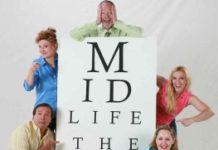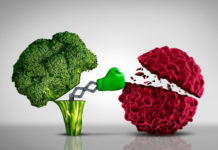By James S. Gordon James S. Gordon, a psychiatrist, is the founder and director of The Center for Mind-Body Medicine and author of “Unstuck: Your Guide to the Seven-Stage Journey Out of Depression.”
I begin many days by crying. I’m not depressed, it’s not something I intend to do and I’m not a sad person. It just happens, often when I’m reading the morning paper. And it’s been going on for several years.
When I cry, I sometimes think of Gregory and Bill, who were puzzled and intrigued by their own later-life tears.
Almost 40 years ago, anthropologist Gregory Bateson — a pioneer in cybernetics and architect of the double bind theory of schizophrenia — wondered aloud to me if he were becoming more sensitive and affectionate as he moved into old age, more prone to tears. A few years later, playwright William Alfred, my former Harvard tutor and long-time friend, said something similar: poems which had once touched him now brought him to tears, Jonathan Swift’s birthday tributes to Stella, for instance, as well as movies that Bill once recognized as “corny” — I remember the adaptation of Emile Zola’s “Therese Raquin” with Simone Signoret — with scenes that creakily tugged at the emotions.
And now, in my 70s, it’s happening to me and I’m trying to understand. Sometimes the cause is deeply personal dreams. I’ll wake just as a little girl I love and helped raise, but haven’t been able to see in years, simply dissolves. Other mornings, my eyes open and dear friends, long-since deceased, who have, for a moment, come alive again, disappear. Movies about fathers and sons, and about family or friends who overcome obstacles and grow close, make me cry. The other day it was “The Way,” in which Martin Sheen’s frozen heart slowly melts as he carries his dead son’s ashes on the Camino de Santiago, the pilgrim’s route in Northern Spain. I become emotional, even more often, observing the dramas playing out on the world’s stage.
The other morning, for example, I cried reading about the world’s impotence to halt the ever-unraveling catastrophe in Syria or to relieve its human consequences. I cry when I read about our Congress’ utter inability to work together, or learn from experience, devolving routinely now into the repeated triumph of unexamined ideology over compassion and common sense. And I cried — this time with joy — reading New York Times Opera critic Anthony Tommasini’s account of a long-ago summer spent listening, enraptured, to Leonard Bernstein conduct Igor Stravinsky.
What’s clear is that after I cry, I feel better. My face and shoulders are more relaxed. I feel a little lighter and more energized. Sometimes I find myself smiling or even dancing.
I’ve looked for studies on increased emotionality or sensitivity in older men and haven’t found anything conclusive. The research I’ve seen tells me that as we grow older, women are more likely to be empathetic than men.
There are suggestions that hormonal changes may make aging men more emotional, or that as we age we care less about maintaining a stoic posture. And there are certainly studies which correlate emotional expression with the effects of depression, social isolation and dementia. As a psychiatrist, these assertions seem plausible but not sufficiently documented and ultimately unsatisfying. They certainly don’t do justice to the human experience
Be a man and cry
Why are we uncomfortable when men cry? Why is it all right for women to show more emotion than men? PostTV talks with a psychology professor to find out where the genesis of the stigma comes from and what can be done to change these social mores. (Jason Aldag/The Washington Post)
It’s pretty clear to me that my emotional mornings (and sometimes afternoons and evenings) aren’t, as I’ve said, about depression (I’ve been there and this is definitely not depression, isolation or even unhappiness). I am continually and happily with many people. Nor does it seem to be dementia. My brain, so far as I can tell, is functioning pretty well; certainly Gregory’s and Bill’s were. So what’s going on?
Gregory, gifted observer of patterns, may have put his finger on it. Men may, as they age, indeed become more sensitive. I’ve noticed the changes in classmates at high school, college and medical school reunions, and in the e-mails we sometimes exchange, as well as in myself. The competitiveness, the real or assumed toughness of our youth is, as we age, being balanced; our Yang tempered by Yin.
Perhaps social scientists will eventually find a way to exhaustively quantify the changes. Right now, though, it’s important simply to know what I and other men are seeing and feeling. We are more willing to admit to and feel the terrible pain of our losses; to weep in celebration of our own and other’s loving connections; to know and feel the threat that individual and collective greed and selfishness, and the fear that feeds them, pose to all of us and to generations beyond us. That our tender emotions are hopeful signs, not of weakness or pathology, but of a necessary and welcome growth — in our compassion, wholeness and, perhaps, our wisdom.
































